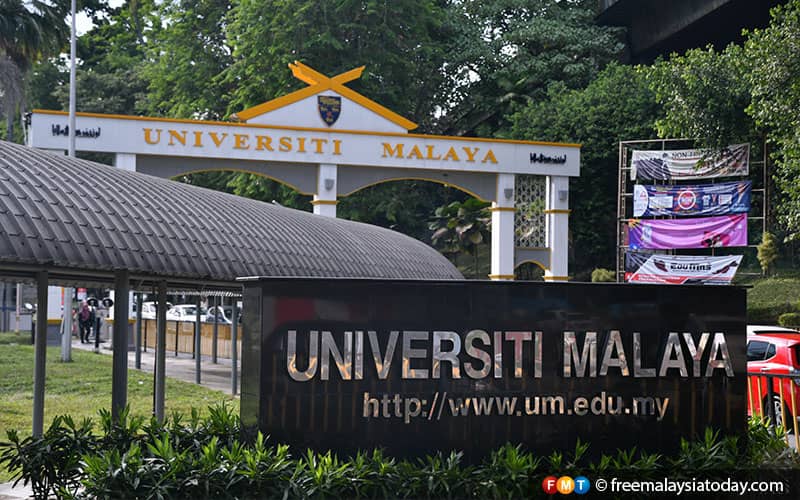
PETALING JAYA: Calls for the government to repeal the Universities and University Colleges Act (Auku) 1971 to guarantee student autonomy in universities have resurfaced.
While the Act was originally formulated to provide a centralised framework for the expansion of higher education in the country, its restrictions on university autonomy and students’ freedom of expression, have made it a contentious issue.
FMT takes a closer look at what is in the Act.
What is Auku?
Auku was established in April 1971 and is partially under the legislative authority of the higher education ministry. The Act aims to provide for the establishment, maintenance and administration of universities and public university colleges.
Following the events of May 13, 1969, then prime minister Tunku Abdul Rahman called for a national state of emergency.
Universities were governed by the Emergency (Essential Powers) Ordinance No 74, which ultimately became the basis of Auku.
The education minister at the time, Hussein Onn, explained that Auku was initially meant as a legal instrument for the establishment of universities in the country, and to officiate the relationship between the state and universities.
To date, the Act has been amended six times.
Notable amendments
In 1975, the Act was amended to give the government full control over universities, particularly in the appointment of vice-chancellors who are then tasked to appoint deans, deputy deans and heads of institutes of schools, replacing democratic elections among academics.
In 1996, the amendment involved the restructuring of universities and corporatising their governance by downsizing the university senate and council. This effectively gagged the academic voices in universities.
The 2009 and 2012 amendments took place after heated discourse that universities needed a greater level of autonomy and accountability to compete with other institutions globally. The amendment saw the authority to control students shift from the education minister to the university.
Then in 2018, Section 15(2)(c), which had previously banned students from taking part in activities organised by political parties within the grounds of universities and colleges, was removed, paving the way for student involvement in politics.
The issue?
Despite the amendment to Section 15(2)(c), multiple student organisations raised concerns over Auku for maintaining the power of the vice-chancellor to suspend or dissolve any group conducting affairs that may jeopardise the university’s interests and harmony.
In 2018, a report by human rights NGO, Fortify Rights, documented how the former Barisan Nasional government misused Auku and its by-regulations to constrain university students from engaging in political discourse and restricting their rights to freedom of expression and peaceful assembly.
Prominent ‘victims’ of Auku
Muda president Syed Saddiq Syed Abdul Rahman recently shared his experience as a “victim” of the Act for criticising power abuses and corruption such as the 1MDB scandal. As a result, he was not invited to his convocation and sacked as a temporary lecturer and debate trainer at universities.
Deputy youth and sports minister Adam Adli was also pulled up under the Act for lowering a flag bearing the face of former prime minister Najib Razak at Putra World Trade Centre and replacing it with a flag that carried a slogan calling for academic freedom.
During his time as opposition leader, Prime Minister Anwar Ibrahim was barred from entering his alma mater (Universiti Malaya) to speak at an event titled ‘40 Years: From UM to Prison’. The university also warned students against attending the event, saying the administration would take disciplinary action against those who did not obey its directive.
All three leaders have been strong proponents for the abolishment of the Act, saying it silenced students and prevented freedom of expression.
Syed Saddiq reminded the government of the pledge it made in the 15th general election (GE15) to repeal Auku, pointing out that it also empowered politicians to decide who administers the universities.
Are there plans to abolish it?
In its manifesto for GE15, Pakatan Harapan Youth had pledged to repeal Auku. This was also in PH’s manifesto for the 14th general election.
Former education minister Maszlee Malik had previously said a working committee for the Act’s abolishment had been formed and tasked with preparing a draft for a new Act to combine both Auku and the Private Higher Educational Institutions Act.
However, this fell apart after the PH government fell in February 2020. His successor Noraini Ahmad was reported to have said that there was no need to replace the two Acts.
On Feb 7, Tanah Rata assemblyman Ho Chi Yang urged the government to abolish Auku, saying it is a key step towards empowering student unions in universities.
He also called for the implementation of “democratic processes” in the appointment of universities’ vice-chancellors, board of directors and faculty deans to promote campus democracy.
Higher education minister Khaled Nordin has since said the government had no plans to repeal Auku because it would affect the governance of public universities, especially during the transitional period of the Act.
However, he said the ministry and public universities were in the final stages of formulating several guidelines to allow students more freedom in organising their activities and joining political programmes, both on and off campus. - FMT


No comments:
Post a Comment
Note: Only a member of this blog may post a comment.